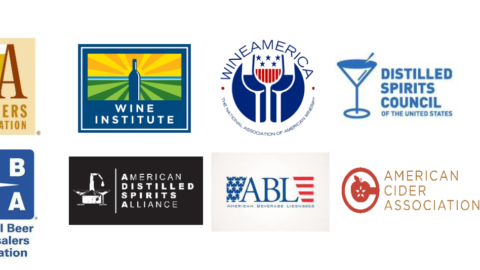Amy Greenberg, Director
Regulations and Rulings Division
Alcohol and Tobacco Tax and Trade Bureau
1310 G Street NW, Box 12
Washington, DC 20005
July 18, 2022
Re: ACSA Comments on Notice No. 210: Standards of Fill for Wine and Distilled Spirits Dear Director Greenberg:
I am writing on behalf of the American Craft Spirits Association (ACSA), the only national trade association solely representing the interests of independent craft distillers across the United States. The independent small businesses that comprise our membership are overwhelmingly supportive of the Alcohol and Tobacco Tax and Trade Bureau (TTB)’s proposed Eliminating the Standards of Fill (Alternative 2).
As the country’s nearly 2,300 small distilleries with limited resources navigate the complex regulatory landscape, we are thankful for TTB’s ongoing and proactive efforts to simplify these requirements. According to ACSA’s Craft Spirits Data Project © (2021) (CSDP), 90.1% of U.S. craft spirits producers remove less than 10,000 proof gallons of spirit from bond each year, more than 90% of these sales are taking place in their home state, and just about 50% are from sales at the distillery itself. These small businesses have struggled through the pandemic, finding difficulty sourcing raw materials, especially packaging materials, as supply chain challenges continue in 2022.
We therefore view this effort to increase the number of accepted standards of fill for spirits as a step toward leveling the competitive playing field for small businesses, which is an explicit aim of the current Administration as expressed in E.O. 14036, 86 FR 36987. To that end, we have some comments on TTB’s proposals, and we propose adding some standards of fill above and beyond those contained in this proposed rulemaking.
When we asked our members whether they were in favor of eliminating the standards of fill, as proposed by TTB, about 80% responded affirmatively to eliminate the standards of fill entirely, most citing that there are not standards of fill for most consumer products, and consumers successfully navigate purchases of these items. Protection of the revenue no longer requires a limited number of available packages, as TTB itself states in Notice No. 210.
Members also raised additional considerations. As producers navigated the pandemic, spirits-based ready-to-drink cocktails (RTDs) emerged and have become very popular products to keep revenue flowing into the distilleries. Marketing these products to consumers in a landscape where malt-based and wine-based canned products are plentiful, requires different standards of fill to compete. Challenges in getting stock for cans in approved sizes makes it very difficult to keep products in stock to meet customer demand, often requiring up front purchases of $30,000 worth of cans and $20,000 worth of bags because of projected shortages for the rest of the year. For a small business, this can really impact cash flow and ability to fund growth. Eliminating the standards of fill would enable more flexibility for small businesses to use the best size can available for the product. A number of members requested that they be able to package their RTDs in larger formats for sale to restaurants and bars in the same approved sizes available for beer and wine, asking for a higher maximum format (5.2 gallon kegs) for RTDs specifically. TTB believes a maximum container size also is needed to maintain the distinction between bottled and bulk distilled spirits products, but we would respectfully suggest that for spirits-based RTDs with alcohol contents comparable to those of beer and wine, the maximum container size should be a 5.2 gallon keg at minimum. This would enable our members’ RTD products to compete on an equal playing field with RTDs produced by breweries and wineries. Distilleries already are at a disadvantage from a tax perspective, we contend that it should not be compounded by a lack of formats appropriate to the product. At a minimum, ACSA requests TTB approve container sizes for spirits that are equivalent to those already allowed for all beer and wine products.
In summary, we deeply appreciate TTB’s ongoing efforts to reduce the overall regulatory burden, and, more specifically, the burden on small DSPs. We believe by working together to rationalize the standards of fill for the disparate products that craft distilleries are making in 2022, TTB and Industry can reduce their shared burden without jeopardizing TTB’s important regulatory and revenue-protecting functions.
Thank you for your immediate attention to this issue. I would be happy to discuss further. I can be reached at (202) 669-3661.
Respectfully,
Margie A.S. Lehrman
Chief Executive Officer
American Craft Spirits Association



